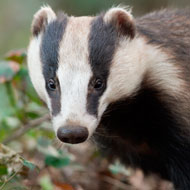BVA supports second year of badger culls

Last year's controversial badger culls failed on both humaneness and effectiveness.
Year two of the badger culls will proceed with support from the BVA, it has been announced. The association says it is satisfied with steps taken to improve this year's culls.
President Robin Hargreaves said badger culling is a “necessary part of a comprehensive bovine TB eradication strategy that also includes strict cattle measures and vaccination.”
Pilot culls in Somerset and Gloucestershire last year failed on both humaneness and effectiveness, according to a report released in April by the Independent Expert Panel (IEP). Culling is due to begin again in both areas this season.
BVA called on Defra to implement the IEP's recommendations for improvement, saying it could only support future culling in the pilot areas if certain conditions were met.
Defra has confirmed a number of changes to its plan, having been in dialogue with the BVA. Shotguns will not be used for controlled shooting and the selection, training and assessment of contractors will be enhanced.
In addition, real-time information will allow for a better distribution of effort, ensuring poor marksmen are removed from the field.
Mr Hargreaves said he is “proud that the veterinary profession has had such an influence on Defra's position.”
In response to calls from the BVA, Defra has also confirmed that an independent auditor will assess the way protocols are carried out during the culls.
While BVA is confident that this addresses many of its concerns, it continues to call on the secretary of state Liz Truss to put in place independent analysis of the culls.
Mr Hargreaves said: “It is essential that Defra gets this right to allow the veterinary profession to have confidence that controlled shooting can be carried out humanely and effectively.”
The BVA says it will assess the outcome of the second year of culling before deciding its position on a rollout of controlled shooting.



 The Greyhound Board of Great Britain has published new vaccination guidance, with all greyhounds registered from 1 January, 2027 required to have the L4 leptospirosis vaccination, rather than L2.
The Greyhound Board of Great Britain has published new vaccination guidance, with all greyhounds registered from 1 January, 2027 required to have the L4 leptospirosis vaccination, rather than L2.